Father-of-two thanks medics and prepares for third Christmas since he ‘cheated death’
A father whose heart stopped while playing with his son in front of their Christmas tree has thanked the paramedics who gave him the gift of life.
At an emotional reunion at Wimbledon Ambulance Station, Patrick Mann, aged just 35 at the time of his cardiac arrest, now aged 37, who lives in Southfields, south London, was able to hug the ambulance crews who came to his rescue after he suffered a cardiac arrest at home.
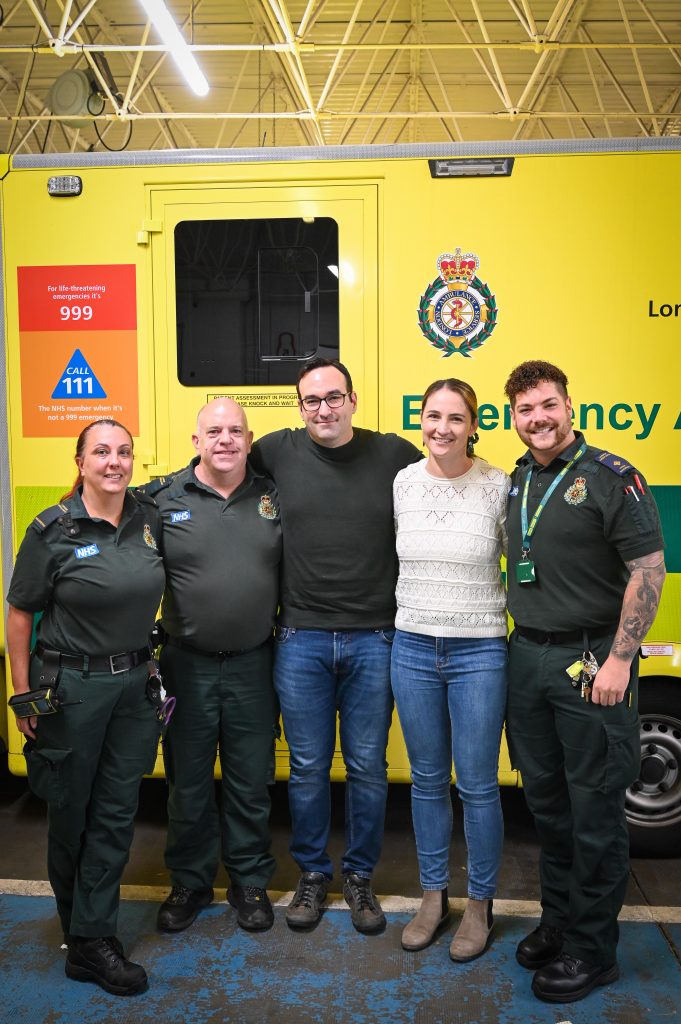
Patrick said: “Thank you so much for saving my life – as trite as that sounds. How do you thank someone for that?”
Patrick had been playing with his three-year-old son Oliver on 3 December 2022 when his life changed forever. He does not remember anything from the day he collapsed, but his wife Tash cannot forget it.
She was upstairs when she heard her son say: “Daddy, why are you lying down like that?” and knew something was wrong. She found Patrick slumped on the ground and immediately she called 999.
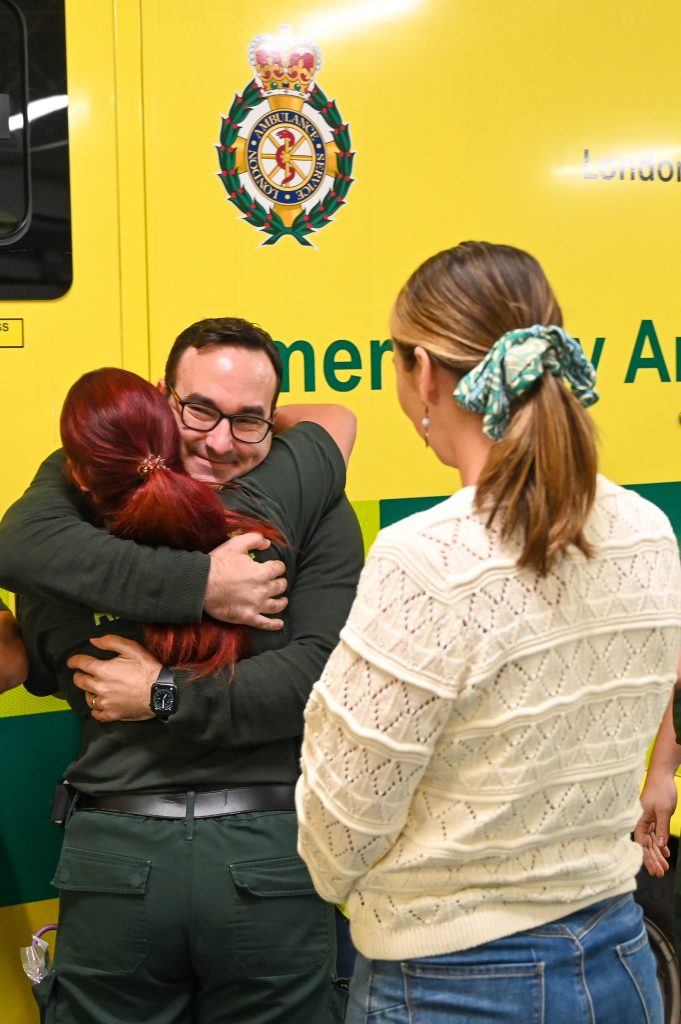
Patrick had previously been diagnosed with Wolff-Parkinson-White (WPW) syndrome – a condition that causes the heart to beat abnormally fast for periods of time. The condition is not usually serious, but in rare cases it can be life-threatening.
Tash said: “I thought he was choking because I heard him gasping for breath – I now know this is called agonal breathing, but didn’t know what that meant at the time. I was on the phone and shouted when he stopped breathing – then immediately started performing CPR.”
Agonal breathing is when someone is gasping for breath, which happens when they are in cardiac arrest.
On the other end of the phone, LAS call handler Terri helped Tash count the beats to perform the CPR.
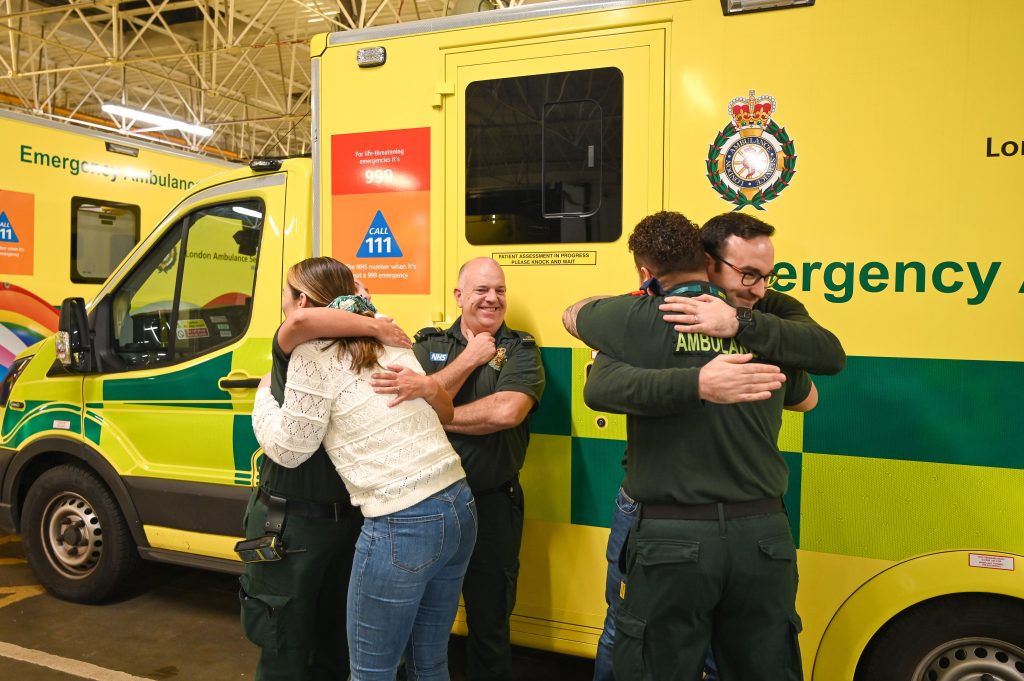
Within a few minutes, ambulance crews including Liz Keegan, Matt Morgan and Jason Anderson arrived at the scene. Advanced paramedics Pete Dalton and Andrew Whitehouse and Clinical Team Manager Michael Light were also dispatched to help save Patrick’s life.
Liz said: “Tash was doing fantastic CPR when we arrived. In fact that she was doing such a good job that we asked her to carry on for a bit while we got out equipment ready before we took over.”
It took five shocks from a defibrillator to restart Patrick’s heart. The ambulance crew then took him to St George’s Hospital in Tooting where he stayed in a medically-induced coma for about 2.5 days to aid his recovery. In total, Patrick spent 19 days in St George’s Coronary Care Unit.
Thankfully, he was able to get home just in time for Christmas.
Tash said: “Those first few days it was very touch and go. The doctors were doing all they could to help him, but we were still terrified of what could happen. When he woke up, he moved his body and was able to talk – but he had a five-second memory, like Dory from Finding Nemo. We had to keep telling him what had happened.”
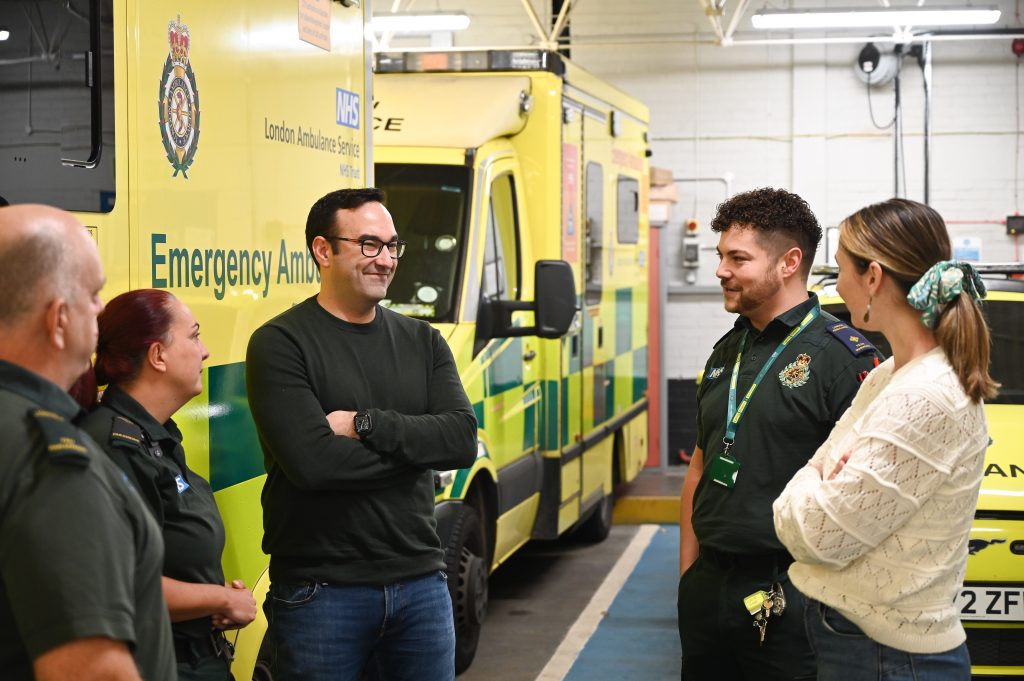
Patrick is now back at work and has not experienced any long term side effects. Following the cardiac arrest and follow-up care, his heart is now functioning normally.
Meeting the paramedics who saved his life, Patrick said: “I’ve read that only eight per cent of people that have an out of hospital cardiac arrest survive. It’s amazing to me that so many people came to my aid and everyone knew what to do – like a well-oiled machine. I’m so glad you train like you do and it’s just phenomenal when you look at survival rates compared to other countries.
“You guys are miles ahead. It’s crazy that you can save that many people – it shouldn’t be possible, you’re cheating death. But I’m so thankful and glad you did!”
Team Leader Matt said: “We are very well trained in how to respond to a patient in cardiac arrest and everyone has a role to play.
“We all knew what we needed to do as quickly as we could to save Patrick’s life and we’re all so utterly overjoyed that it worked.”
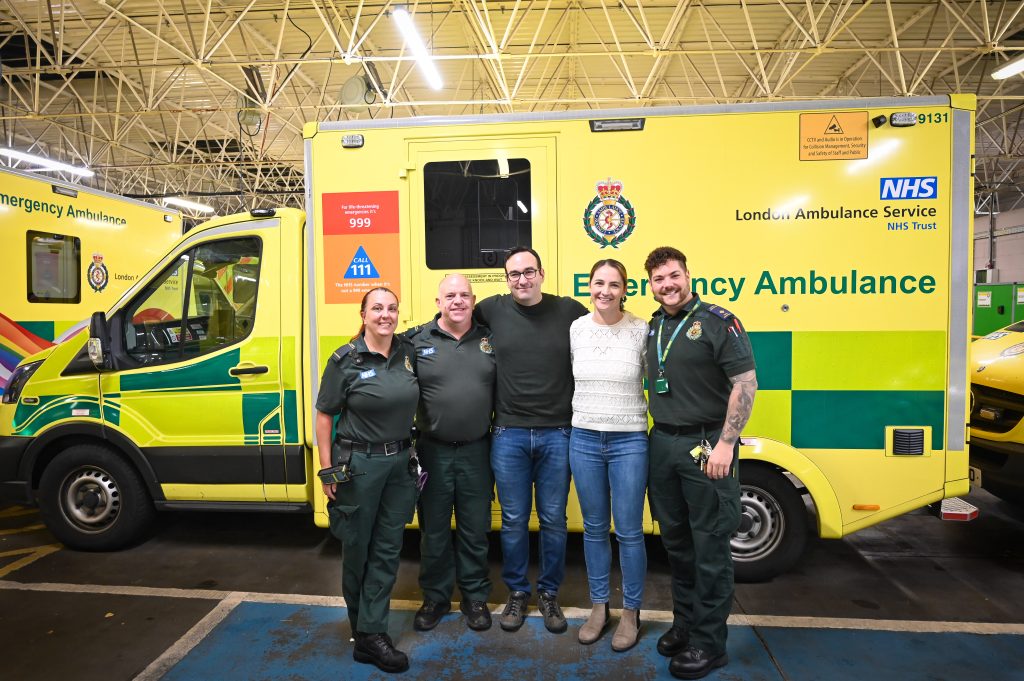
Paramedic Liz added: “It is so wonderful to see Patrick and Tash again. I felt tearful when I met them because we do not necessarily get many happy outcomes in these situations.
“But Patrick was in his 30s and has two young children – I’m very honoured that I was part of keeping that family happy and whole.”
Samantha Palfreyman-Jones, Head of First Responders at London Ambulance Service, said; “Knowing what to do when someone is in cardiac arrest and having the confidence to act quickly will save lives. More than 75% of cardiac arrests occur at home, and early CPR and defibrillation can more than double a person’s chances of survival. So if you can learn these skills – like Tash – you could save the life of someone you love.”
London Ambulance Service aims to help London become a city of lifesavers. You can learn how to perform CPR in a matter of minutes with our London Lifesavers programme. Or you can support our London Heart Starters campaign to fundraise for more public-access defibrillators across the capital.

Follow us on social media: